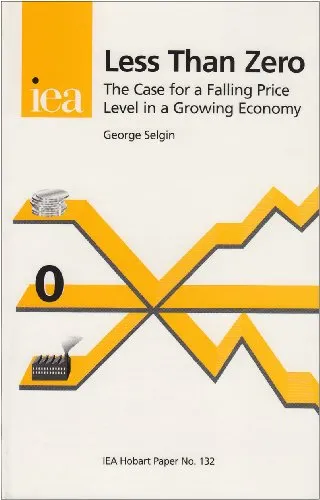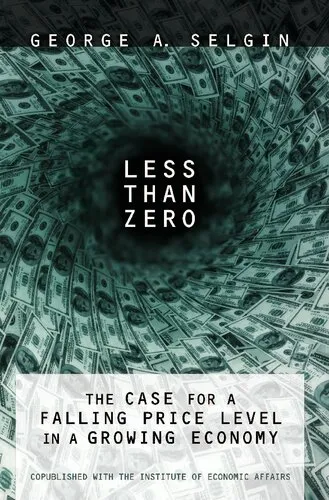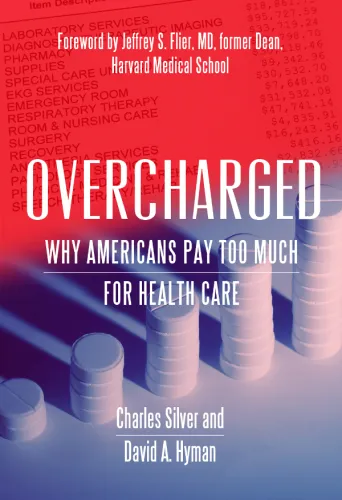Less Than Zero: The Case for a Falling Price Level in a Growing Economy (Hobart Papers)
4.3
Reviews from our users

You Can Ask your questions from this book's AI after Login
Each download or ask from book AI costs 2 points. To earn more free points, please visit the Points Guide Page and complete some valuable actions.Related Refrences:
Welcome to the insightful world of "Less Than Zero: The Case for a Falling Price Level in a Growing Economy" by George Selgin, a transformative piece that challenges conventional economic wisdom concerning price levels and economic growth. This work delves into the intricate relationship between inflation, deflation, and economic progress, providing fresh perspectives for students, academics, and policy-makers.
Detailed Summary of the Book
In "Less Than Zero: The Case for a Falling Price Level in a Growing Economy," George Selgin articulates a compelling argument for why a falling price level can coexist with economic expansion. Throughout the book, Selgin critically examines the prevailing consensus that stable or mildly inflationary price levels are essential for macroeconomic stability. He explores the historical and theoretical underpinnings of this belief, meticulously dissecting common misconceptions regarding deflation.
Selgin argues that moderate and predictable deflation resulting from technological advancements and productivity gains should be differentiated from harmful deflation that stems from monetary contraction. By doing so, he illuminates the potential benefits of allowing price levels to fall in a structured economic environment. Through historical examples and economic models, Selgin provides evidence to support his thesis that a declining price level, under the right circumstances, promotes efficient resource allocation, increases real wages, and enhances overall economic welfare.
Key Takeaways
- The distinction between 'good' and 'bad' deflation is critical; the former arises from positive supply shocks, while the latter is a result of demand contraction.
- A falling price level can lead to tangible benefits, such as improved purchasing power and higher real incomes, particularly when driven by productivity improvements.
- Monetary policy should be flexible enough to accommodate deflation driven by economic growth, rather than adhering to a rigid inflation target.
- The historical aversion to deflation is largely based on inaccurate associations with economic downturns, ignoring instances of benign deflation.
Famous Quotes from the Book
"The specter of deflation has been more imagined than real, a bogeyman that serves to keep alive the inflationary bias of modern monetary policy."
"Recognizing the difference between harmful deflation and beneficial price decreases is crucial for forming sound monetary policies."
Why This Book Matters
"Less Than Zero" is significant because it challenges mainstream economic beliefs and urges policymakers to reassess the automatic association of deflation with economic harm. In an era where monetary policy plays a pivotal role in economic strategy and planning, understanding the nuances of inflation and deflation is more crucial than ever. George Selgin's book equips readers with a deeper appreciation for how falling prices, in a context of productivity advances, not only signal but can also spur economic prosperity.
Moreover, the book contributes to a broader dialogue about the goals of central banking and the metrics by which economic health is judged. By advocating for the acceptance of benign deflation, Selgin proposes a paradigm shift that could have far-reaching implications for economic policy and global financial stability.
Free Direct Download
You Can Download this book after Login
Accessing books through legal platforms and public libraries not only supports the rights of authors and publishers but also contributes to the sustainability of reading culture. Before downloading, please take a moment to consider these options.
Find this book on other platforms:
WorldCat helps you find books in libraries worldwide.
See ratings, reviews, and discussions on Goodreads.
Find and buy rare or used books on AbeBooks.
1538
بازدید4.3
امتیاز0
نظر98%
رضایتReviews:
4.3
Based on 0 users review
Questions & Answers
Ask questions about this book or help others by answering
No questions yet. Be the first to ask!














